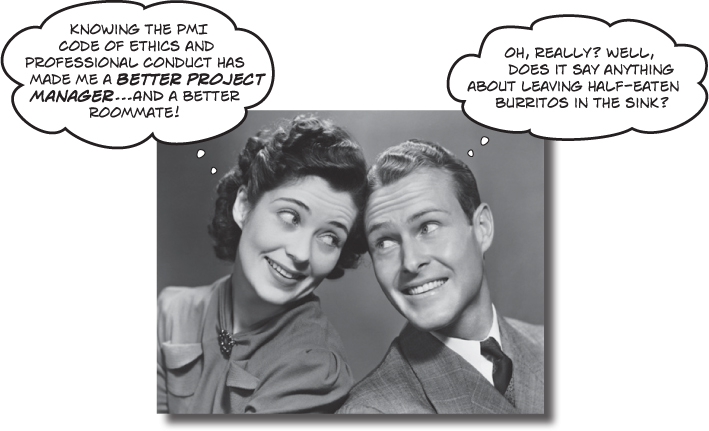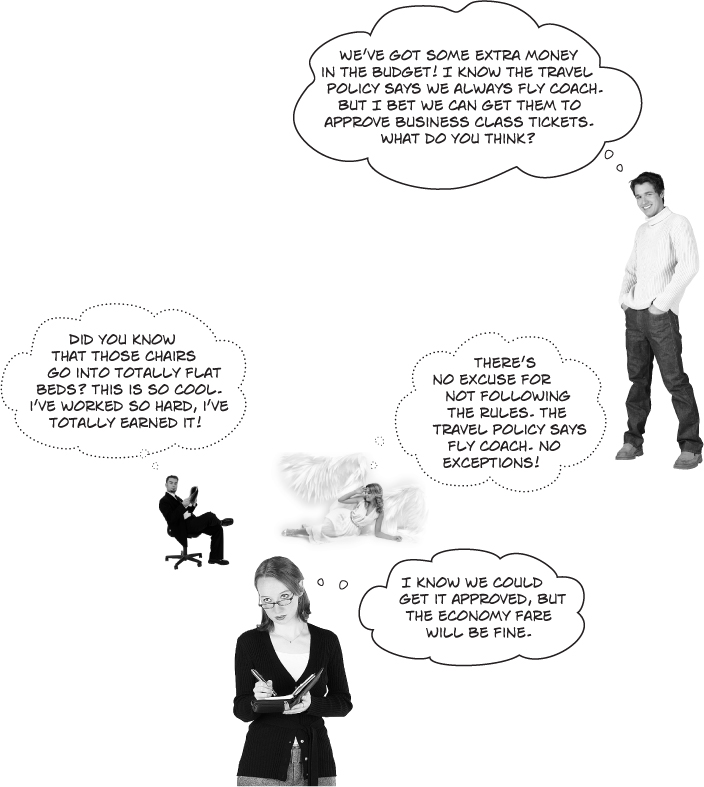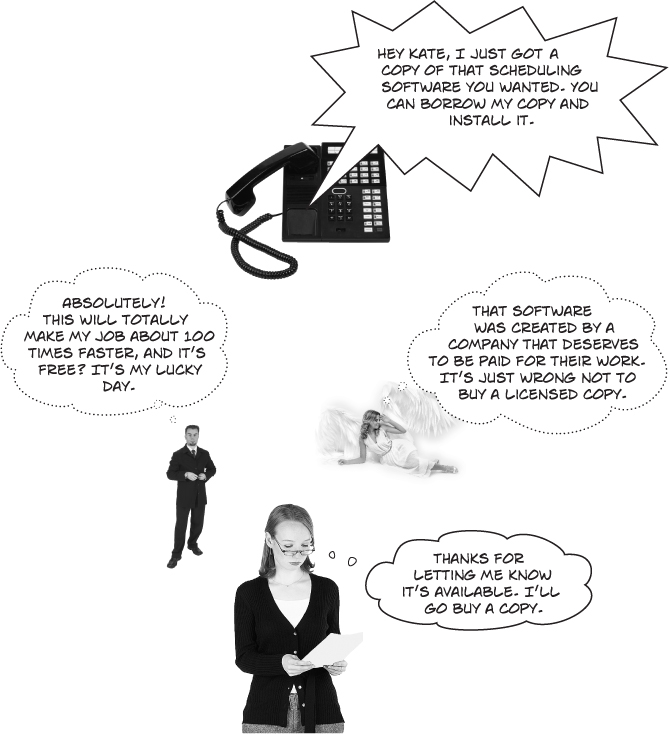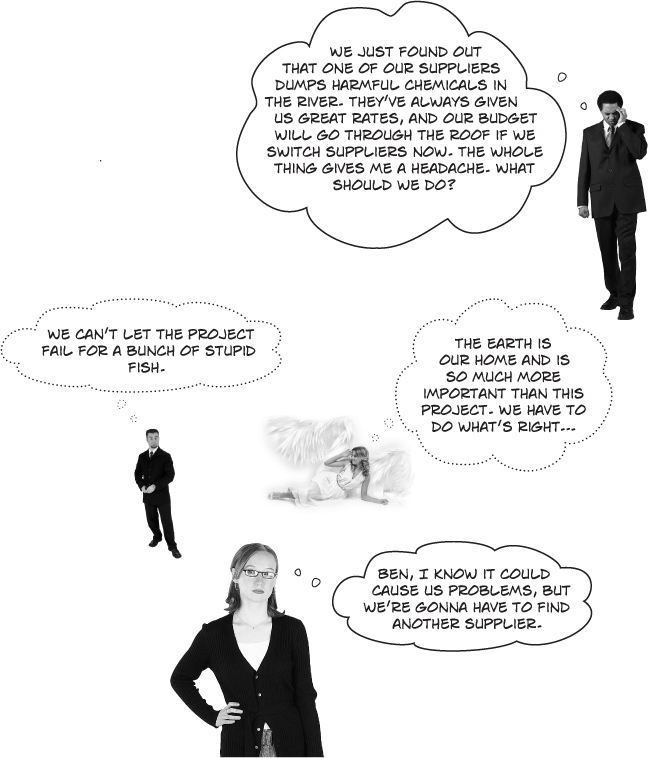The main ideas
In general, there are a few kinds of problems that the code of ethics prepares you to deal with:
Follow all laws and company policies.
Treat everybody fairly and respectfully.
Have respect for the environment and the community you’re working in.
Give back to the project management community by writing, speaking, and sharing your experience with other project managers.
Keep learning and getting better and better at your job.
Respect other people’s cultures.
Respect copyright laws.
Always be honest with everyone on the project.
If you find that another person has done something to damage the PMP credential in any way, you must report it to PMI.
Note
So if you find out that someone has stolen questions from the PMP exam, cheated on the PMP exam, falsely claimed to have a PMP certification, or lied about anything related to the PMP certification process, then you MUST report that to PMI.
Ethics and professional responsibility questions make up 10% of the exam. That’s good news because these questions are really easy if you understand the ideas behind the PMP Code of Professional Conduct.
Being a PMP-certified project manager means that you know how to do your job and that you will do it with integrity.
It might seem like it doesn’t really matter how you will handle these situations, but think about it from an employer’s perspective for a minute. Because of the PMI Code of Ethics and Professional Conduct, employers know that when they hire a PMP-certified project manager, they are hiring someone who will follow company policies and do everything aboveboard and by the book. That means that you’ll help to protect their company from litigation and deliver on what you promise, which is actually pretty important.
So you should definitely expect to see questions about ethics and professional responsibility on the exam. Not only that, but you won’t necessarily see them as straightforward, black-and-white questions, either. Since the questions on this topic are combined into the other questions for the process groups, you’re likely to get questions about situations that might occur on real projects. A question about ethics or professional responsibility might look at first like a question about, say, a particular tool or technique in planning. Keep your eye out for “red herring” questions that turn out to be about ethics and social responsibility. They’ll lay out a situation that sounds like a normal project management problem, but requires you to use one of the principles in the PMI Code of Ethics and Professional Conduct.







